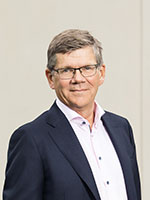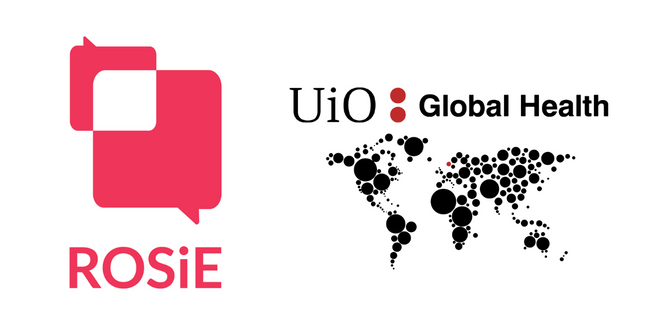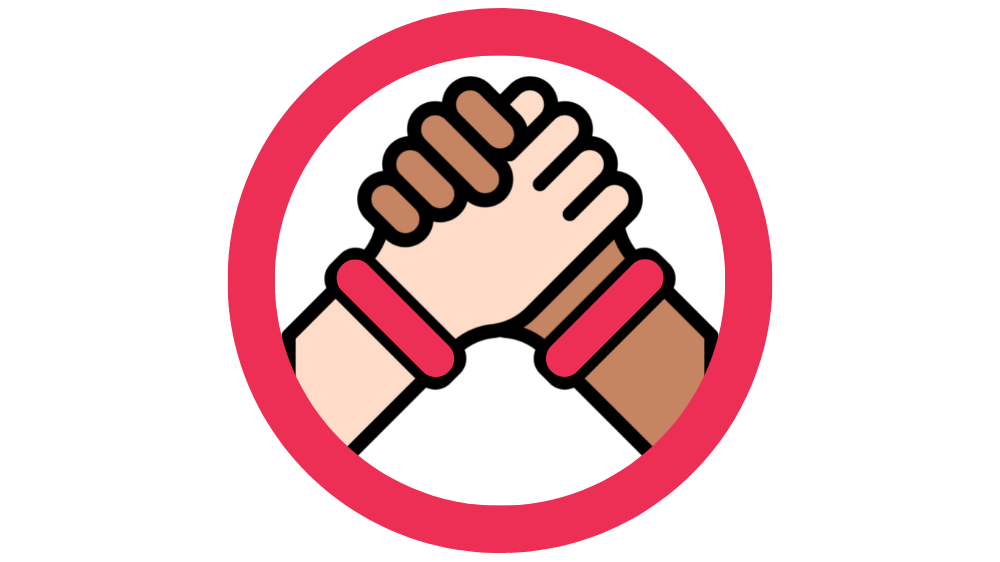Full capacity for physical attendance has been reached. A live stream of the event will be available starting at 12:30.
Live Stream - available at 12:30 CET
Password: science
This seminar will tackle the integrity challenges in international collaborations, especially with North-South collaborations, whether for research, capacity building, and/or other developmental and/or innovative purposes. Integrity, as enshrined in several codes of conduct and applied to international collaborations, refers to responsible, accountable, internally and externally consistent, equitable, and overall, ethical collaborative conduct. The necessity for and the national and global benefits from international collaborations are undeniable. However, as with any great endeavor, and as evidenced by documented research, there can be real integrity issues in international collaboration not least because of incongruence between the collaborating countries in terms of regulations, standards, and scientific practices, but also because of cultural differences in the definitions and interpretations of acceptable or ethical practices. In the current literature, it is commonplace to encounter terms such as “helicopter research, parachute research” or colonization through these various collaborative practices.
The most recent pandemic magnified these problems resulting in grossly delayed access for the Global South to vaccines. The quickly emerging “new way” of doing science, i.e., the so-called Open Science, can either magnify or address these issues, depending on whether sufficient and deliberate attention are given to these issues as Europe and the world redefines research and collaborative integrity governance. With the aim of contributing to the discussion, this seminar will convene experts in international collaboration based on their track record and experience in successful North-South collaborations. Join us in-person (in Oslo) or digitally - registration is required.
More about the Ethics in Global Health Crosscutting Theme led by Rosemarie Bernabe can be found here.
Program
| Time | Title | Speaker |
|---|---|---|
| 12:00 | Light lunch and refreshments | |
| 12:30 | Welcome | |
| Introduction |  Rosemarie Bernabe | Professor, Centre for Medical Ethics, UiO Rosemarie Bernabe | Professor, Centre for Medical Ethics, UiO |
|
| Open remarks |  Svein Stølen | Rector, UiO Svein Stølen | Rector, UiO |
|
| 12:45 | Collaboration and Development: Perspectives from the ground |  Leni Robredo | Former Vice-President, Republic of the Philippines Leni Robredo | Former Vice-President, Republic of the Philippines |
| 13:20 | Global Research Partnership and Integrity: African perspective |  Alemseged Abdissa | Deputy Director General, Armauer Hansen Research Institute (AHRI), Ethiopia Alemseged Abdissa | Deputy Director General, Armauer Hansen Research Institute (AHRI), Ethiopia |
| 13:40 | Research Integrity and Public-Private Partnership: Experiences in Gravitate-Health |  Anne Moen | Professor, Department of Public Health Science, UiO Anne Moen | Professor, Department of Public Health Science, UiO |
| 14:00 | Coffee break | |
| 14:20 | Fair and Equitable Research Partnerships - Beyond Ethics? |  Carel IJsselmuiden | Executive Director, The COHRED Group, South Africa & Netherlands Carel IJsselmuiden | Executive Director, The COHRED Group, South Africa & Netherlands |
| 14:40 | International Collaborations and the European Governance of Open Science |  Rosemarie Bernabe | Professor, Centre for Medical Ethics, UiO Rosemarie Bernabe | Professor, Centre for Medical Ethics, UiO |
| 15:00 | Panel discussion and open Q&A | |
| 15:30 | Closing remarks | |
Speaker Bios
Leni Robredo
She was the 14th Vice-President of the Republic of the Philippines (2016-2022). During her term, Robredo reinvented the Office of the Vice President of the Philippines, leading its leap from traditional ceremonial functions to advocacy-centered work that made a direct impact on Filipinos’ lives. Rising above limitations in mandate and resources, she and her team crafted an anti-poverty program called Angat Buhay (“uplift lives”). Harnessing the power of collaboration, the program was a space for private sector partners, both local and abroad, to contribute in helping communities around the country. Angat Buhay’s work began in the key advocacy areas of food security and nutrition, health, education, rural development, women empowerment, and housing. In keeping with the times, Robredo’s office widened its reach to other areas of need. Throughout her term, she and her team set an example of swift and efficient disaster response. They took this a notch higher when COVID-19 hit Philippine shores, launching a comprehensive pandemic response. By the end of Robredo’s term, the Angat Buhay program had mobilized 914 million pesos (around USD15.48 million), helping more than a million individuals and half a million families in 324 communities nationwide. This was made possible by the generosity and efforts of 551 partner organizations. Upon her return to private life, Robredo established Angat Pilipinas, the largest NGO in the Philippines, to continue with the activities of Angat Buhay.
Alemseged Abdissa
Alemseged Abdissa is Deputy Director General of Armauer Hansen Research Institute (AHRI), Ethiopia since 2018. AHRI is a biomedical and clinical research institute established in 1970 in collaboration with Sweden and Norway; and operates under Ministry of Ethiopia. Alemseged is also an Associate professor of Microbiology at Jimma University. He has ample experience in research undertakings and leadership focusing on areas including HIV, Malnutrition, TB, antimicrobial resistance and Malaria. He has authored or co-authored over 88 scientific articles. He is chair of the Pan-African Bioethics Initiative and member of the general assembly of EDCTP representing Ethiopia. Alemseged is passionate about research/innovation capacity building in Africa and strives to contribute to regional and international initiative directed to nurturing excellences in African settings. One example is developing a practical guide for institutionalization of research mentorship in LMIC in collaboration with WHO/TDR and partners.
Anne Moen
Anne Moen is full professor at the Faculty of Medicine at the University of Oslo, Oslo, Norway, and adjunct Professor, Norwegian Center for eHealth Research, Tromsø, Norway. She is Director of UiO:eColab, Institute for health and society, a research lab supporting technology mediated complex, patient focused interventions, and multidisciplinary teamwork to sustain health and wellbeing.
Her program of research focuses on design and deployment of digital tools and accompanying services, emphasizing citizen empowerment, digital health literacy and overall engagement for health and wellness, and understand digital citizens centered services, based on opportunities to “collect, curate and control” all relevant, personal health information. She is the coordinator of “Gravitate – Health: Empowering and Equipping Europeans with Health Information from trusted sources for active, safe, secure personal health management and adherence to treatment” (Research and Innovation, Public-Private Partnership, funded by IMI2 JU, 2020-2025). Gravitate-Health’s mission is to prepare and test innovative, easy-to-use elegant digital services that actively engage and empower citizens and their support network with access to and understanding of health information from trusted sources. The medicinal product information – currently paper based, enclosed with every dispensed pack – is a key source and starting point. The Gravitate-Health consortium has 40 members from 15 countries in Europe and USA, 28 public partners from research and innovation, standardization organizations, patient advocacy groups, health enterprises and SMEs and software developers, and 11 private partners from pharmaceutical industry, and Medicinal product information provider. See Gravitate Health.
She is Past President of EFMI (European Federation for Medical Informatics) and IMIA-EFMI Vice President (2016-2018). Anne is founding member of the Norwegian Nurses Organisation’s special interest group on Nursing informatics and eHealth (1998), and past chair of the Norwegian Society for Medical Informatics (2009-2016). She served as EFMI representative in EU eHealth stakeholder group (2015 – 2019) and was rapporteur for “Citizens – health data”. She was elected to ACMI (American College of Medical Informatics) 2015, founding fellow of IAHSI (International Academy for Health Sciences Informatics) 2017, and Honorary Fellow of EFMI 2019.
Anne Moen is an RN (1985), with a master's degree in nursing science (1996), and PhD in social sciences (Dr. polit) – specialization in health informatics (2002) from University of Oslo, Norway. She had been Fulbright fellow (2002) and postdoc at University of Wisconsin-Madison and UiO (2002 – 2005) and visiting scientist at University of Wisconsin-Madison – Health systems Lab (Patricia F. Brennan PI).
Carel IJsselmuiden
Dr IJsselmuiden is a public health physician, epidemiologist and social entrepreneur with a long career in rural and urban health and health care in South Africa, and an academic career in public health-promoting public health schools on the African continent. He is the executive director of the Council on Health Research for Development (COHRED) in Geneva, Switzerland, and Honorary Professor at the University of KwaZulu-Natal in South Africa. He has a long-standing interest in the ethics of collaborative health research involving participants from low and middle-income countries, particularly from Africa – starting when there was little serious interest in supporting the ethical review of international health research. As a result, he developed short courses and master's degree programmes in the ethics of health research at the University of Pretoria's School of Health Systems and Public Health (SHSPH). As professor of public health and founding director of SHSPH, he obtained the NIH/FIC grant to develop a research ethics training programme which was awarded to him as PI in 2001. This became SARETI (the South African Research Ethics Training Initiative – the first African Master programme in research ethics that now is in its 4th NIH funding cycle. A new, SARETI Leadership programme, also NIH funded, has opened as a doctoral programme in research ethics).
He was appointed by the Minister of Health as member of South Africa’s National Health Research Ethics Committee (SANREC) between 2000 and 2003 and co-hosted the “Revision of the Declaration of Helsinki” international conference in Pretoria with the World Medical Association and the European Forum for Good Clinical Practice in 2001. He has over 150 peer-reviewed publications, many of which concern research ethics. He was external examiner for PhD in research ethics at the University of Basel in 2017 and 2019. When he became Director of COHRED in Geneva, Dr IJsselmuiden became a senior member of the SARETI executive committee and Dr Wassenaar took over as SARETI PI. Having participated in the NIH and WHO-initiated Global Forum on Bioethics in Research (GFBR, Littler et al, 2014) from its inception in 1999, he hosted the secretariat for the GFBR for 2 years (2006–2008). At COHRED, he held a 3-year grant from EDCTP (European and Developing Countries Clinical Trials Partnership) for the development of a 'self-updating' map of African RECs. This resulted in an Africa-wide web-based REC administration platform, RHInnO Ethics, which was handed over to an African non-profit company, EthiXPERT in 2021. (See www.ethixpert.org.za) He participated in the 2016 revision of the CIOMS research ethics guidelines.
As Executive Director of COHRED, he drives ‘research and innovation for health’, working with LMICs to support national research system development to enhance countries’ capabilities to take the lead in national research agendas, to engage in fair and equitable partnerships (Research Fairness Initiative (RFI - https://rfi.cohred.org) and negotiate and conclude fair research contracts (FRC - https://frcweb.cohred.org), become more competitive in selected fields of science and innovation and contribute to the prevention of a repetition of the vaccine inequity seen in the COVID-19 pandemic.
Rosemarie Bernabe
Rosemarie Bernabe is professor of research ethics and research integrity at the Centre for Medical Ethics of the University of Oslo and adjunct professor of medical research ethics at the University of South-Eastern Norway. Her passion has always been on the issues of access and fairness in global health collaborations and has extensive experience collaborating on these matters with various stakeholders from Europe, Asia, Africa, and Latin America. She currently leads multiple large international consortia on ethics and integrity -- the knowledge sifted from which Rose wishes to bring to the seminar -- including the following: the European Commission projects, Responsible Open Science in Europe (ROSiE), The Equitable, Inclusive, and Human-Centered XR Project (XR4Human), Enhancing Ethics and Integrity Capacity in Medical Research and Clinical Practice (ETHIMED), Improving post-trial access in Africa (AccessAfrica) Beyond Bad Apples: Towards a Behavioral and Evidence-Based Approach to Promote Research Ethics and Research Integrity in Europe (BEYOND); and Developing national and global agendas for the ethics of post-trial arrangements in low and middle income countries during pandemics/epidemics (Pandemic Ethics).


The ROSiE project has received funding from the European Union's Horizon Europe research and innovation programme under grant agreement no: 101006430.
